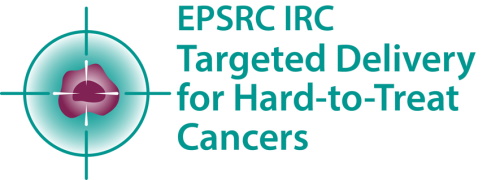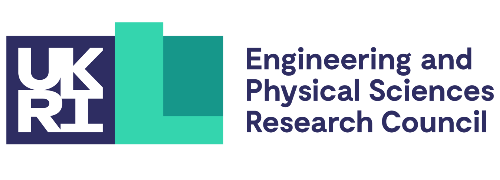
Submitted by L. Millard on Tue, 26/04/2022 - 13:26
A paper co-authored by members of the IRC team brings focus to studies assessing the effect of the carrier size of novel polymer nanocarriers on immunocompatibility, viability and uptake into different pancreatic cancer cells. The open access paper appears in the journal Nanoscale published by the Royal Society of Chemistry on 19 April 2022.
The paper titled ‘Size-tuneable and immunocompatible polymer nanocarriers for drug delivery in pancreatic cancer’ describes the design of novel polymer nanocarriers made of melanin-mimetic polydopamine and Pluronic F127 units. This design, which implements rational design strategies and uses relevant models for their validation, addresses challenges associated with the translation of nanomaterials from lab to clinic.
We believe that more relevant models to validate new systems and thinking about the manufacturing and scale up aspects before embarking on extensive pre-clinical validation, will increase the number of formulations that fulfil stringent requirements. Our work highlights the importance of cross-disciplinary consultation and exchange of ideas at the early stages of experimental planning. Dr Ljiljana Fruk, Associate Professor of Bionanotechnology at the University of Cambridge and IRC Investigator
Presenting recent developments in this field of research, the paper explains that more than 50 nanoformulations, including liposomes, polymers and albumin nanoparticles (NPs), have already been approved for clinical use, mostly in cancer therapy. Despite challenges to translation to clinic, including “insufficient clarity in regulatory guidelines, the need for more relevant validation strategies to cover the disease heterogeneity and the ability to fine-tune the carrier systems based on the tumour biology”, the authors highlight the distinct therapeutic advantages that nanocarriers offer by “improving the pharmacokinetic profile of poorly soluble drugs as well as various pharmacological parameters, including clearance rate and peak drug concentration”.
“Although considering the number of published papers, there has been significantly few nanocarriers approved for clinical use, the potential is still there. We believe that more relevant models to validate new systems and thinking about the manufacturing and scale up aspects before embarking on extensive pre-clinical validation, will increase the number of formulations that fulfil stringent requirements,” said Dr Ljiljana Fruk, Associate Professor of Bionanotechnology at the University of Cambridge and IRC Investigator. “Our work highlights the importance of cross-disciplinary consultation and exchange of ideas at the early stages of experimental planning.”
Pancreatic cancer is a highly heterogenous type of cancer and the outlook for patients remains bleak – it remains highly resistant to many drugs, including chemotherapy and radiotherapy, with a five-year survival rate below 8%. It is the fifth most common cause of cancer death in the UK and there has been no significant improvement in outcome over the last 40 years due to: “ the lack of specific symptoms, early onset of metastasis, complex tumour biology and a dense, heterogenous microenvironment, known as the stroma. The stromal tissue accounts for up to 80% of the total tumour volume and contributes to the high density, stiffness and interstitial pressure, acting as a shielding physical barrier to therapeutic delivery”.
The study used Pluronic-polydopamine nanocarriers to deliver irinotecan active metabolite SN38, which is used in the treatment of pancreatic cancer. The paper reports an “increased antiproliferative effect was observed in all tested cell lines after administration of the drug encapsulated within the carrier, indicating the system’s potential as a therapeutic agent for this hard-to treat cancer”.
The paper concludes: “Although these initial studies indicated significant difference in the uptake of different carrier sizes, further studies that take into account the diffusion through 3D tumour space need to be performed using relevant organoid and in vivo models.”
• The authors of the paper ‘Size-tuneable and immunocompatible polymer nanocarriers for drug delivery in pancreatic cancer’, published by the Royal Society of Chemistry journal are: Andrea Bistrović Popov, Francesca Melle, Emily Linnane, Cristina González-L ópez, Ishtiaq Ahmed, Badri Parshad, Christoph O. Franck, Hassan Rahmoune, Frances M. Richards, Daniel Munñoz-Espín, Duncan I. Jodrell, David Fairen-Jimenez and Ljiljana Fruk.
• Read the full paper ‘Size-tuneable and immunocompatible polymernanocarriers for drug delivery in pancreaticcancer’ here. DOI: 10.1039/D2NR00864E (Paper) Nanoscale, 2022, Advance Article


